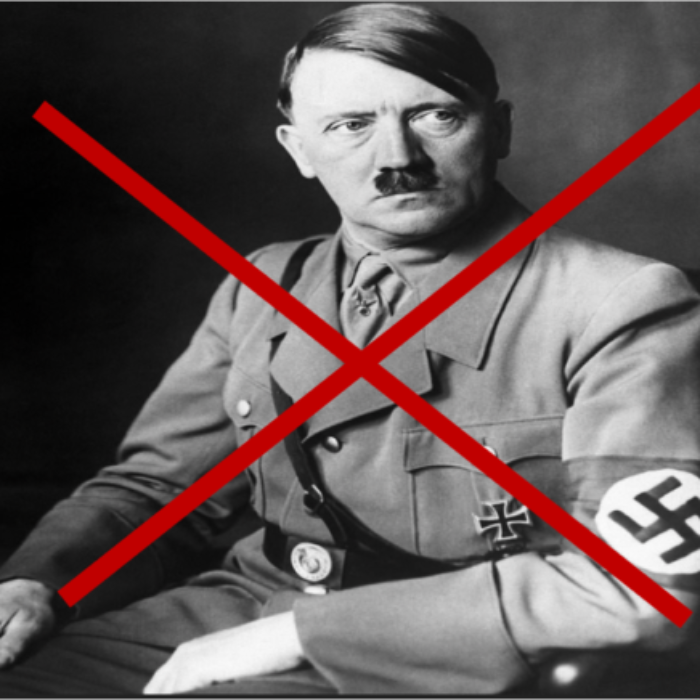The Editorial Board
One of the most common questions we receive from Nigerian readers is whether the U.S. under President Trump and Nigeria under President Tinubu will strengthen their bilateral alliance or if their leadership styles will create friction. Will their administrations deepen economic and security cooperation, or will differences in governance and personality obstruct meaningful collaboration?
This question is critical because a strong and mutually beneficial relationship between Nigeria and the U.S. is strategically vital, particularly under the Trump administration.
Given Trump’s America First agenda, it is in Nigeria’s—and indeed all African nations’—best interest to carefully assess the trajectory of their relationship with the U.S. under his administration.
Understanding how Trump’s policy priorities and leadership style, values and personality traits align or conflict with Tinubu’s will be crucial in navigating diplomatic, economic, and security engagements to safeguard national interests. Failure to establish a functional rapport could leave Nigeria bearing the greater consequences.
For instance, a strained relationship could lead to reduced foreign direct investment, harsher economic coercion, restricted trade, and limited security cooperation, weakening Nigeria’s fight against economic stagnation, social instability and insecurity.
Additionally, with the U.S. running a trade deficit with Nigeria, any trade restrictions—such as reduced oil imports or higher tariffs on Nigerian exports—could deal a serious blow to Nigeria’s weak economy. The reality is that Tinubu has no leverage over Trump; the U.S. does not rely on Nigerian oil.
Also, stricter immigration policies could impact Nigerians studying, working, or pursuing opportunities in the U.S., potentially reducing the estimated $15 billion in annual remittances from the U.S. diaspora that are crucial to Nigeria’s economy.
In international relations, the strength of bilateral ties often depends less on diplomatic formalities and more on the personal rapport—or lack thereof—between leaders.
This is especially relevant with Trump, given his transactional approach to diplomacy, preference for strong, decisive leaders, and tendency to shape foreign relations based on personal impressions rather than institutional protocols.
Therefore, we examine the governance priorities, leadership styles, and personality traits of both Trump and Tinubu to assess how their relationship could impact the US-Nigeria relations, particularly in economic partnership, foreign direct investment, trade, and security cooperation.
Our analysis indicates that Trump and Tinubu are unlikely to find common ground on key strategic and bilateral issues, making a productive partnership difficult to achieve. In fact, Trump is likely to view Tinubu’s leadership with strong disapproval.
Key Divergences: Personality and Leadership Style
Despite both holding executive power, Trump and Tinubu differ significantly in their leadership approaches, values, and governance philosophies. These differences are likely to hinder a strong and cooperative bilateral relationship.
Strong Leadership
President Donald Trump has consistently championed strong leadership, economic prosperity, and accountability as cornerstones of effective governance.
Throughout his first term as president, he expressed deep skepticism toward leaders who fail to deliver tangible results for their people and has shown an unwavering commitment to ensuring that American partnerships are built on mutual benefit and integrity.
Given the widespread criticisms surrounding President Bola Ahmed Tinubu—accused of electoral fraud, corruption, and policy failures that have plunged Nigeria into economic turmoil—Trump would likely view Tinubu as a weak leader and his leadership with strong disapproval and skepticism.
Smart Leadership
Trump has repeatedly expressed admiration for world leaders he perceives as smart and strategically strong, often praising their leadership abilities regardless of their governance styles.
He has described Vladimir Putin, Kim Jong Un, Viktor Orbán, Recep Tayyip Erdoğan, and Xi Jinping as highly intelligent and effective, highlighting their control over their respective nations.
In contrast, Tinubu has frequently been labeled intellectually lazy, with critics accusing him of lacking the depth of thought and critical analysis necessary for effective governance.
His early poorly conceived policies have led to widespread hardship among Nigerians, and his decision-making often appears reactionary rather than strategic. Additionally, concerns about his age-related mental decline and lack of clarity in public engagements have reinforced doubts about his cognitive sharpness.
Given Trump’s aversion to what he calls “dumb” leaders and his clear preference for those he deems intelligent and strong, he is more likely to view Tinubu as weak and incompetent rather than as a respected counterpart. This lack of respect could strain U.S.-Nigeria relations, as Trump is unlikely to prioritize engagement with a leader he does not take seriously.
Legitimacy
President Trump has frequently emphasized the importance of electoral integrity and the legitimacy of leadership as fundamental pillars of national stability and democratic progress.
Having repeatedly claimed that his own election was “stolen” and that election integrity is paramount to democracy, Trump harbors a deep resentment toward leaders who gain power through fraudulent means.
Tinubu’s presidency, marred by allegations of a stolen election and widespread irregularities, would likely be viewed by Trump as an illegitimate regime that lacks the trust and confidence of its citizens.
Trump, known for his insistence on fair electoral processes, would undoubtedly condemn Tinubu’s controversial rise, seeing it as a direct affront to democratic values and a barrier to meaningful diplomatic engagement.
To Trump, a leader who ascends to power through questionable means undermines not only his own credibility but also the stability and future of his nation.
Tinubu’s dubious victory would only reinforce Trump’s disdain for corrupt electoral systems, further solidifying his skepticism about Nigeria’s leadership.
Accountability
President Trump has consistently criticized corruption and has asked other countries to help investigate corruption. Tinubu’s government, widely perceived as a den of corruption and nepotism, would be an immediate red flag for Trump, who has advocated for stringent oversight of U.S. foreign assistance and economic partnerships.
Under Tinubu’s leadership, Nigeria remains mired in the misappropriation of public funds, opaque governance, and a leadership culture driven more by self-enrichment than national development.
Transparency International’s Corruption Perceptions Index continues to rank Nigeria among the most corrupt nations, reflecting the persistence of deep-seated governance failures.
Trump’s transactional approach to foreign relations means he expects transparency and accountability from partner nations. In dealing with a leader like Tinubu, whose administration is characterized by financial recklessness and a blatant disregard for public welfare, Trump would likely take a hardline stance, limiting diplomatic and economic engagements, and influence multilateral lending by the World Bank and IMF until real reforms are made.
Economic Strength
Trump’s business-minded approach to governance prioritizes economic growth, job creation, and low inflation. In stark contrast, Tinubu’s administration has overseen a catastrophic economic decline, marked by skyrocketing inflation, mass unemployment, and food insecurity that has left millions of Nigerians in desperate conditions.
For Trump, who believes in pro-growth economic policies, Tinubu’s failure to stabilize Nigeria’s economy and foster an environment conducive to investment would be seen as gross incompetence.
During his first presidency, Trump openly described corrupt and inept African nations as “shithole” nations, a statement that sparked global outrage. Some U.S. officials believe he had Nigeria in mind when making this remark, given the country’s persistent struggles with corruption and economic mismanagement. It seems Tinubu has continued this trend.
Based on his results-oriented leadership style, Trump likely believes that Nigerians deserve leaders who can harness the country’s vast resources to foster prosperity and development, rather than those who sustain poverty and stagnation. He may not see Tinubu as that leader. This, of course, is our conjecture.
Meritocracy
President Trump values decisive leadership and a merit-based system where individuals rise through competence and performance. His administration is actively dismantling diversity, equity, and inclusion programs in government agencies to promote what he calls a “merit-based” society.
In contrast, President Tinubu’s administration has faced criticism for inefficiency and favoritism, with allegations of appointing individuals based on loyalty to him, and ethnic and party affiliations rather than merit. This approach weakens effective governance and could lead Trump to perceive Tinubu as lacking the strong, meritocratic and results-driven leadership he admires.
People-Centered Policies
Trump prioritizes policies that deliver tangible benefits to citizens, emphasizing job creation and economic growth. Tinubu’s leadership, however, has been accused of neglecting public welfare, with policies that have not effectively addressed the needs of ordinary Nigerians.
His deadly handling of the EndBadGovernance protests was met with international opprobrium and accusations of mass torture and human rights violations. This divergence could cause Trump to perceive Tinubu as disconnected from the Nigerian people, failing to implement the people-centered policies that Trump advocates.
Lean and Efficient Governance
Throughout his presidency, Donald Trump has emphasized the importance of efficient and cost-effective governance. In January 2025, he established the Department of Government Efficiency (DOGE), led by Elon Musk, with the aim of streamlining federal operations and reducing wasteful spending.
Tinubu’s administration, however, is seen as bloated and ineffective, with an oversized bureaucracy draining significant resources, slowing decision-making, and impeding service delivery. This inefficiency could frustrate Trump, who values lean government, prompt and decisive action in governance.
Public Admiration and Trust
Trump values leaders that command the respect and support of their citizens. He would likely view Tinubu as a weak and ineffective leader, incapable of driving national unity or inspiring confidence.
Trump has often stressed the need for “winning” leadership—those who prioritize the well-being of their citizens and take bold actions to improve their nations. By this measure, Tinubu’s lack of vision and inability to address Nigeria’s most pressing challenges would be seen as a leadership failure of monumental proportions.
The Nigerian people have grown increasingly disillusioned with Tinubu’s leadership, as his policies have led to widespread hunger, economic paralysis, and an erosion of public trust.
Protests and public outcry against his administration highlight a growing sentiment of anger and hopelessness, signaling that Tinubu’s government is failing to connect with the people it claims to serve.
The Implications for U.S.-Nigeria Relations
Nigeria holds significant strategic importance as Africa’s largest economy and a key player in regional security and trade. However, under Tinubu’s leadership, Nigeria has become increasingly unstable and economically fragile, making it a less attractive partner for the United States.
Trump, who views foreign relations through a pragmatic lens, would likely see little value in engaging with a weak and ineffective administration that cannot offer stability or economic opportunities.
Tinubu’s only likely value to the Trump administration would be as a strategic asset in the geopolitical contest against China and Russia in Africa. With Trump’s emphasis on curbing foreign influence on the continent, he might seek to leverage Nigeria’s position to counter these rival powers.
Yet, Tinubu’s administration may struggle to meet these expectations due to issues of credibility and competence. Rather than viewing Nigeria as a reliable partner, Trump’s administration would likely exert pressure on Tinubu to enact meaningful reforms or risk losing U.S. investment and diplomatic support.
Ultimately, Trump would have little patience for a leader who embodies the very failures he claims to reject—dishonesty, mismanagement, and economic decline.





